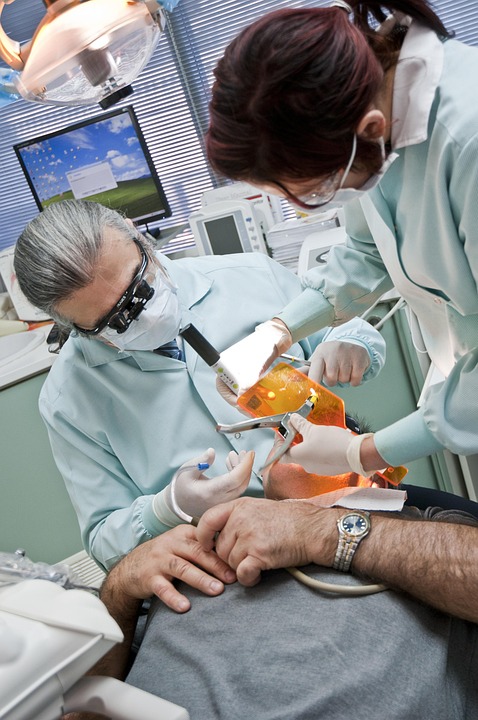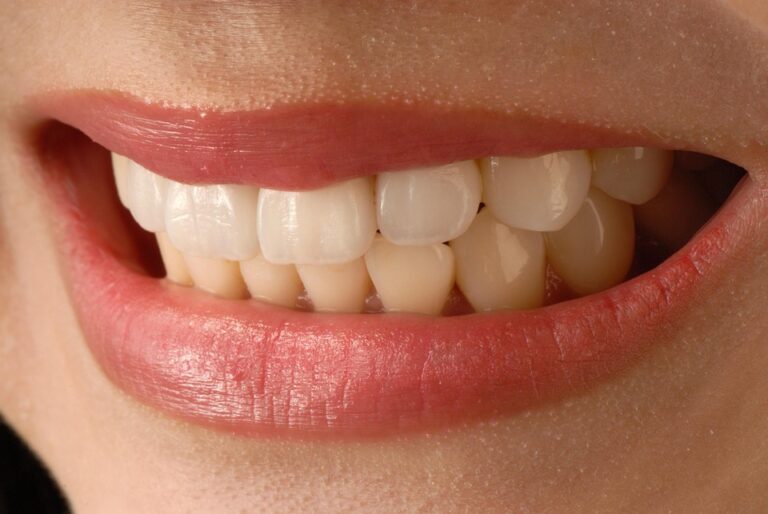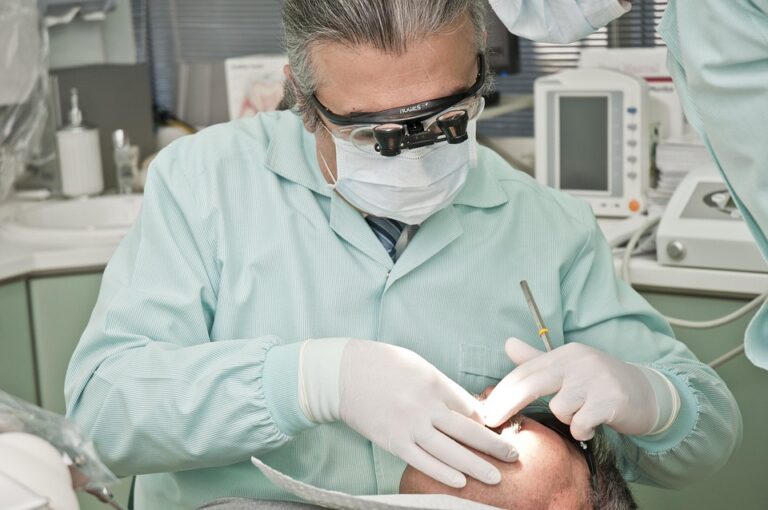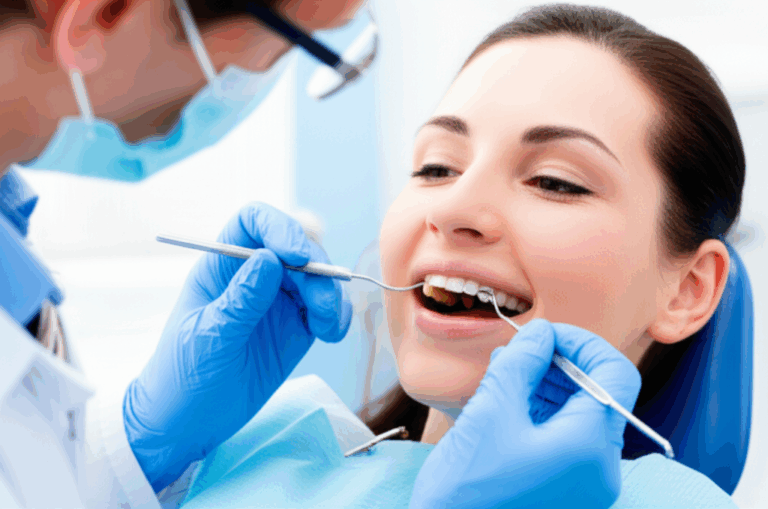
Can Bad Teeth Cause Stomach Problems? The Surprising Oral-Gut Connection
Are your teeth more important to your tummy than you think? Yes, they are! This article will show you why bad teeth can do a lot more than give you a sore mouth or a not-so-perfect smile. When your mouth has problems, they could be sending warning signs right to your stomach. We’ll look at how bad oral health and your digestion are linked, the stomach problems you might get from bad teeth, what things to look out for, and easy steps you can follow to keep both your teeth and belly happy. Don’t miss out—your whole body needs a healthy smile!
Table of Contents
What Is the Oral-Gut Connection?
Let’s start with a story. Think of having a small cut on your hand. If you don’t take care of it, dirt can get in and make your whole arm hurt. It’s the same with your mouth and your belly. When your mouth isn’t healthy, the problems don’t just stay there—they can spread.
The oral-gut connection is like a busy road running from your mouth to your stomach. Everything you eat or drink goes through both. The tiny world in your mouth, called the oral microbiome, is full of bacteria—some good, some bad. When you get bad teeth, gum problems, or other mouth troubles, these bad germs can travel right down to your stomach.
Studies show that when you get too many “bad guys”—like germs from tooth decay or gum infections—they can mess up the good balance in your belly. That means mouth problems can lead to real tummy problems, sometimes even before you notice.
Why does it matter? Because your whole body starts with your mouth!
Can Bacteria in My Mouth Cause Stomach Issues?
You might not think about it, but every time you swallow, you send thousands of mouth germs down to your stomach. Most don’t hurt you, but things start going wrong when the bad ones win.
For example, did you know certain germs like Porphyromonas gingivalis—the one that causes gum disease—can make it all the way and live in your stomach? There, they can mess up your gut microbiome—the helpful “bugs” that help you break down food—and cause problems.
There’s more. Your mouth can even hide Helicobacter pylori, the tricky germ that causes gastritis and peptic ulcers. That means you could keep getting your stomach sick just by not cleaning your mouth well.
Table: Bacteria and What They Do
| Bacteria Name | Where It Starts | Problems It Can Cause |
|---|---|---|
| P. gingivalis | Gums/teeth | Gum disease, gut swelling, IBS, IBD |
| Streptococcus mutans | Cavities | Tooth decay, maybe gut problems |
| Helicobacter pylori | Mouth or stomach | Gastritis, ulcers, stomach aches |
It’s like having tiny troublemakers slide right into your belly!
How Does Chewing Affect My Digestion?
Ever try eating an apple with a sore tooth? It’s hard! If you don’t chew well because your teeth hurt, have cavities, or you’re missing teeth, your food goes into your stomach in big pieces.
Why is this a problem? Your stomach likes well-chewed food because it’s easier to break down. If food is too big, your belly works harder and might get tired, giving you indigestion, gas, or tummy pain.
Your spit (saliva) has special helpers that start breaking down food in your mouth. When you don’t chew well, these helpers can’t work. Your stomach gets stuck with a tough job—and that can leave you feeling bad after you eat.
A lot of people with bad teeth complain about stomach aches. When you think about it, it really makes sense!
Can Gum Disease Really Make My Stomach Hurt?
You might wonder—can gum problems really bother your stomach? Yes! Gum disease is more than just sore or puffy gums. It’s an infection, and infections cause swelling.
That swelling can spread, kind of like smoke from a fire. Things called cytokines leak from your gums and go into your blood, ending up in your belly. These make your gut wall weaker. Doctors call it “leaky gut,” which lets bad stuff sneak in where it shouldn’t.
People with gum disease are more likely to get tummy problems, like irritable bowel syndrome (IBS), inflammatory bowel disease (IBD), and stomach aches. The link is really strong with Crohn’s disease and Ulcerative Colitis.
Analogy
Think of your gums like the castle door keepers. If the guards (your gums) are asleep, invaders (germs and bad stuff) run inside, making a mess everywhere—even in the kitchen (your stomach).
What Kinds of Stomach Problems Come From Bad Teeth?
When your teeth go bad, your whole belly can act up. Here are some real stomach troubles people get because of mouth problems:
- Indigestion (Dyspepsia) – Not chewing well and mouth germs make it harder for your belly.
- Heartburn (GERD) – Big pieces of food and germs can bother your food pipe and stomach.
- IBS and IBD – Swallowed germs like P. gingivalis make your belly upset, causing gas, pain, diarrhea, or constipation.
- Gastritis and Peptic Ulcers – Mouth bugs like H. pylori can mess up your stomach wall and cause ulcers.
- SIBO (Small Intestinal Bacterial Overgrowth) – Too many swallowed germs tip the balance, making digestion rough.
- Malabsorption/Nutrient Deficiency – If your gut is swollen or food isn’t broken down well, you don’t get enough vitamins.
- Bad Breath (Halitosis) – It’s not only a mouth problem! Smelly breath means germs are living in your mouth and gut.
I once knew someone who had constant stomach pain until a dentist found a few bad teeth and a gum infection. After fixing the teeth, the stomach pain stopped. Pretty amazing!
What Are the Signs of Dental-Related Digestive Problems?
You might not know your stomach aches are coming from your teeth, but your body can drop hints. Look out for these:
Digestive Signs
- Stomach pain, cramps, or burning that doesn’t go away
- Bloating, gas, or always feeling full
- Nausea, or throwing up for no reason
- Diarrhea or constipation that keeps coming back
- Heartburn or reflux that doesn’t stop
Oral Signs
- Bleeding or swollen gums
- Toothaches, sensitive teeth, or teeth that feel loose
- Bad breath, even after brushing
- Ulcers or sores in your mouth that won’t heal
- Trouble chewing or swallowing
Other Signs
- Losing weight or always feeling tired, even if you eat enough
If you’ve tried lots of stomach medicines with no luck, let your dentist check your mouth. It might surprise you!
How Can I Prevent Mouth Bacteria From Reaching My Stomach?
Don’t worry! The answer isn’t to stop eating or swallowing. The key is good mouth care:
- Brush your teeth two times a day with fluoride toothpaste.
- Floss every day.
- Use a safe mouthwash if your dentist says it’s okay.
- Clean your tongue—germs love hiding there.
- Visit your dentist for checkups and cleanings at least two times a year, not just when it hurts!
If you need fillings, crowns, or new dentures, don’t wait. Germs love broken or missing teeth and can move more easily.
For quality dental work, check out a trusted china dental lab for well-made dental repairs. Good dental work stops germs from getting a free ride to your belly!
What Foods and Habits Help Both My Mouth and Stomach?
It’s easy! Here’s what to eat and do to help both your teeth and belly:
Eat These:
- Crunchy veggies and fruits (carrots, celery, apples) for healthy gums and better chewing
- High-fiber foods (whole grains, beans, brown rice) for happy guts
- Lean meats (chicken, fish) that are easy to eat and digest
- Dairy or dairy-free options with calcium (keep teeth strong)
- Probiotics like yogurt, bring good germs to your belly
Avoid These:
- Sugary snacks and soda— these feed the bad germs!
- Sour foods and drinks (cola, lemon juice) that can wear down your teeth and hurt your stomach
Good Habits:
- Drink lots of water—keeps mouth and belly clean
- Don’t smoke and go easy on booze
- Handle stress, it makes gum and belly problems worse
Try eating soft, healthy foods if chewing is tough. If you have missing teeth, talk with a removable denture lab for comfortable teeth that help you eat well.
When Should I See a Dentist or Doctor?
You know your own body, so trust yourself. See a dentist or doctor if:
- Stomach troubles won’t go away, even after medicine or changing what you eat
- Bleeding gums or tooth pain
- New or stronger pain anywhere in your belly
- Losing weight, feeling tired, or trouble eating
- Mouth sores that last more than two weeks
Sometimes you need both a dentist and a doctor together. If your dentist sees bigger problems, you might get sent to a gastroenterologist, who looks at your stomach.
How Can the Right Dental Lab Protect My Health?
Not all dental repairs are the same. Where your crown, bridge, or dentures are made is important! A great dental lab cares about:
- Good fit that stops food and germs from hiding in small spaces
- Modern materials like dental ceramics or zirconia, which last long and are safer
- Digital designs and 3D tools for better results
If you need dental work, choose a top crown and bridge lab or digital lab for strong, clean, and comfy teeth repairs. Better repairs mean fewer germs and less tummy trouble.
Summary: Main Points to Remember
- Your mouth and belly are linked. Bad teeth can cause stomach troubles.
- Mouth germs can move to your stomach and mess up your digestion.
- Bad chewing from hurting teeth makes your stomach work harder, with pain and tummy problems.
- Look for signs—mouth pain, swelling, bad breath, or on-going stomach problems.
- Stop problems by brushing, flossing, eating right, and seeing your dentist often.
- Pick quality dental repairs—choose a good dental lab when fixing teeth.
- If things don’t get better, see both dentists and doctors to keep your whole body safe.
Remember: Taking care of your teeth is really taking care of your belly! Keep smiling, eat well, and let a healthy mouth lead to a happy gut.








